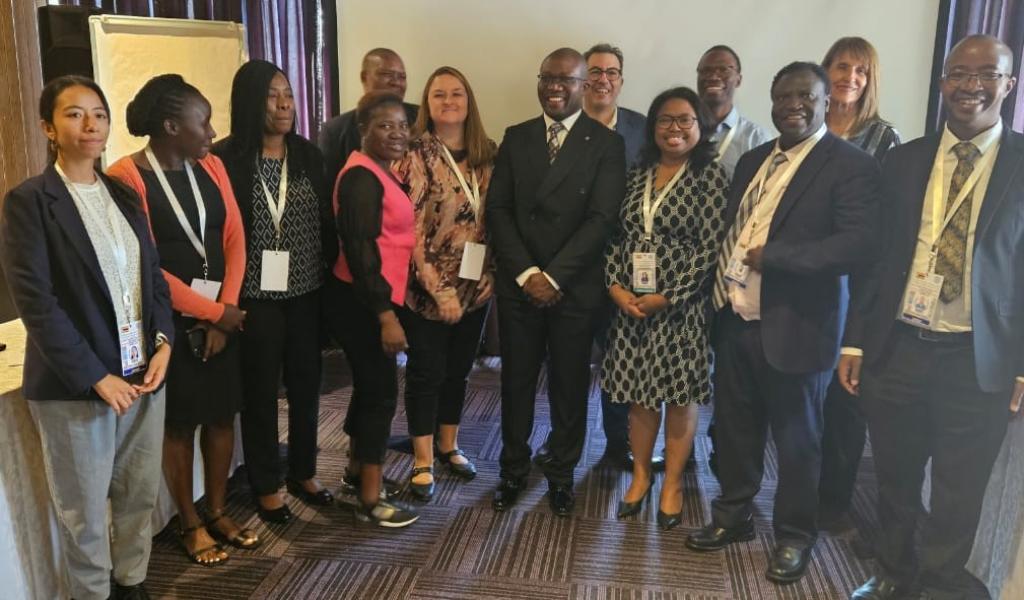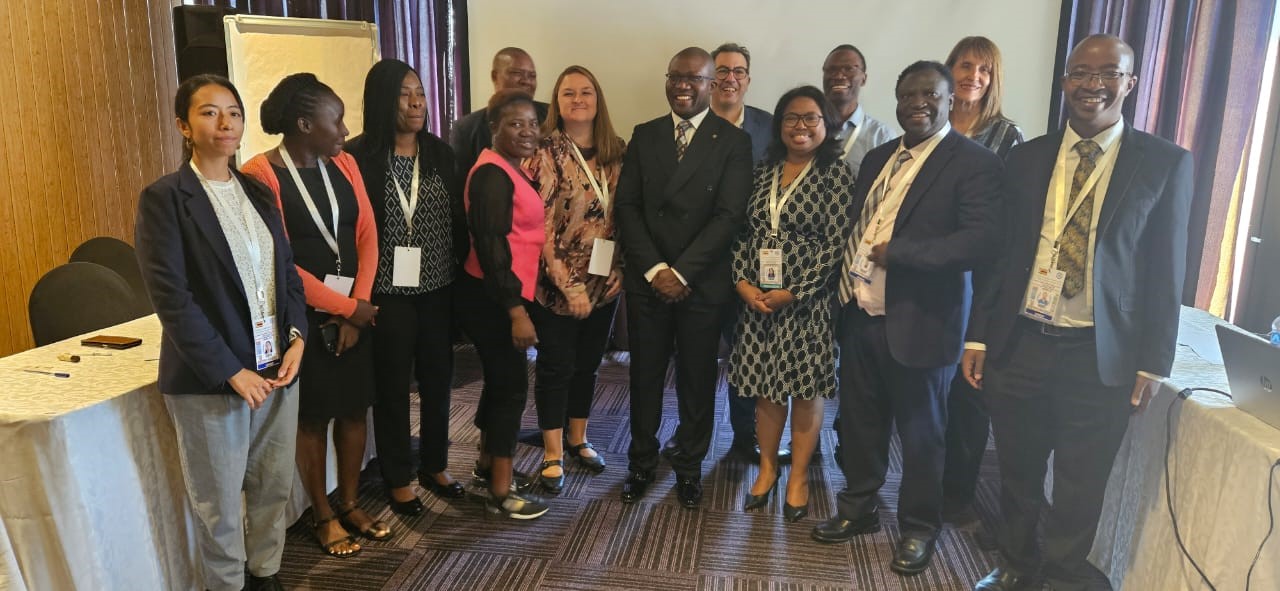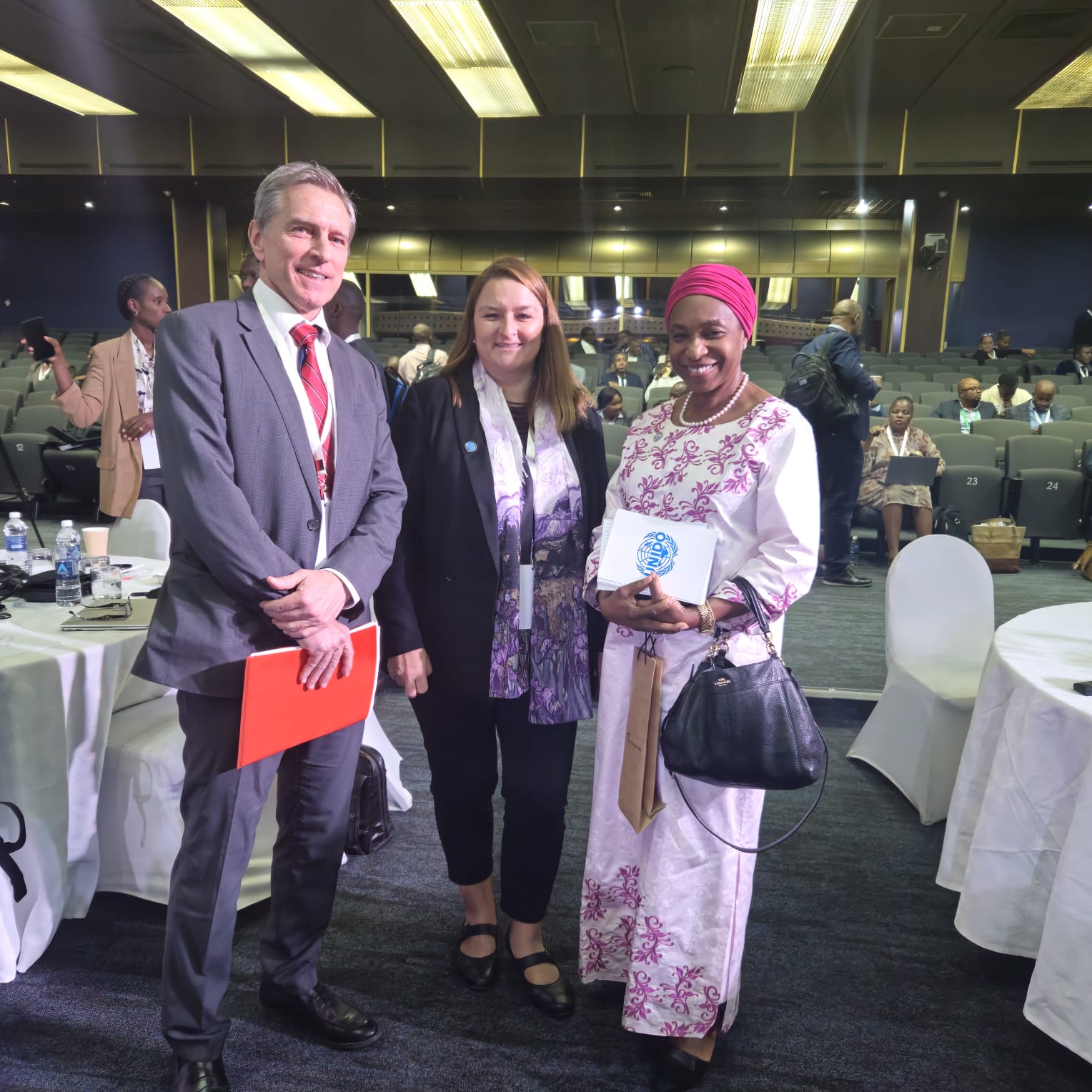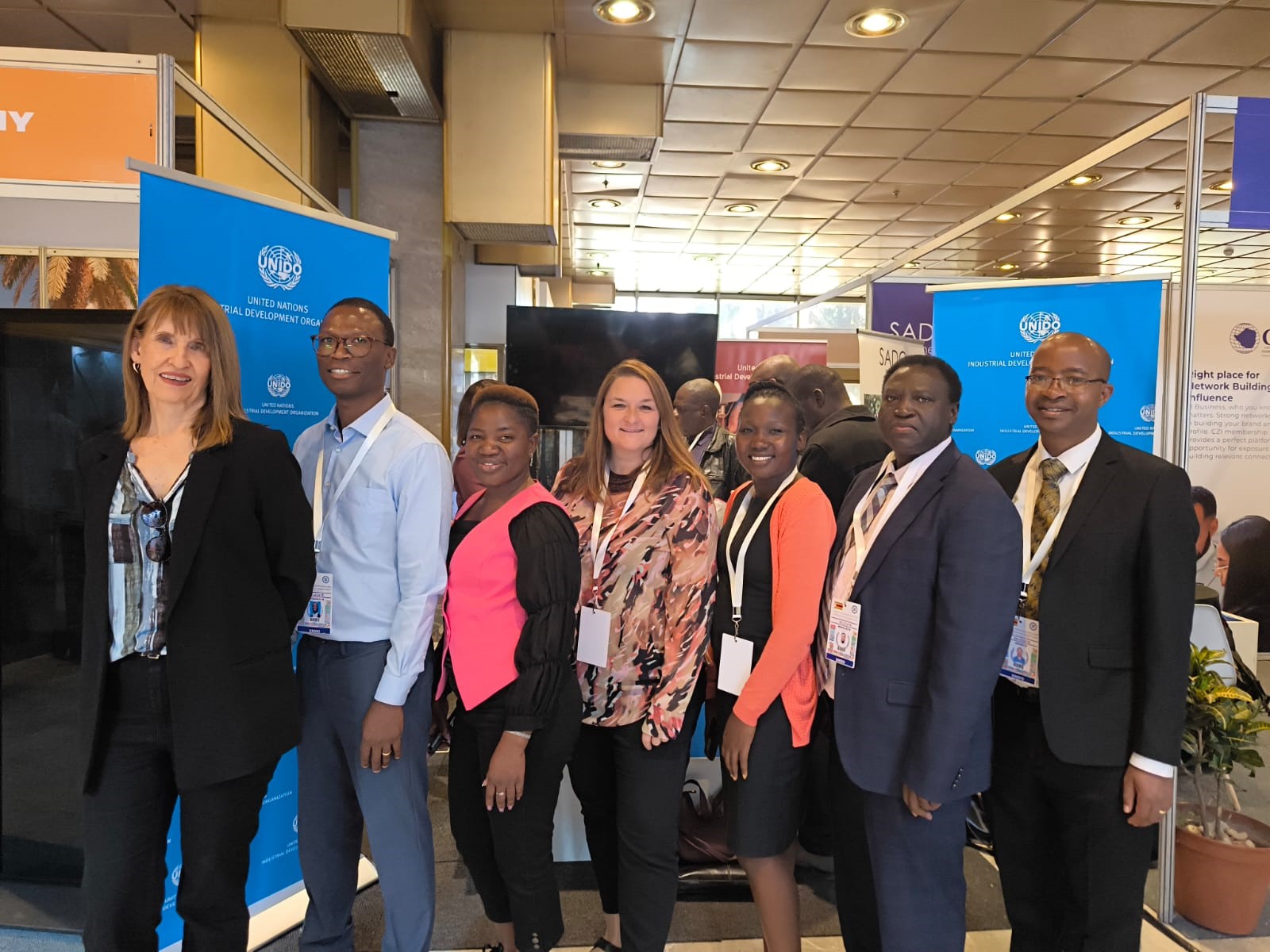News
SADC Industrialization Week: Promoting Innovation to Unlock Opportunities for Sustainable Economic Growth towards an Industrialized SADC

The 7th SADC Industrialization Week (SIW) took place from 28 July to 2 August 2024 in Harare, Zimbabwe, bringing together regional leaders, industry experts, and stakeholders under the theme, “Promoting Innovation to Unlock Opportunities for Sustainable Economic Growth and Development towards an Industrialized SADC.”
The event was hosted by the Government of Zimbabwe. President Mnangagwa, President of the Republic of Zimbabwe and Incoming Chairperson of SADC, officially opened the 7th annual SADC Industrialization Week stressed the importance of SIW in advancing the SADC Industrialization Agenda, stating, “It challenges all of us—governments, industry, and development partners—to achieve rapid socio-economic development and an improved quality of life in our countries and the region, leaving no one and no place behind.”

UNIDO’s and EELA Project’s Alignment with SIW Goals
The agenda of the SIW aimed to strengthen economic ties between the 16 Member States of the SADC region through a conference program centered on promoting innovation to support sustainable economic growth. The objectives of the Energy Efficient Lighting and Appliances (EELA) project align directly with this theme. The EELA project seeks to create market and institutional conditions to promote the adoption of energy-efficient lighting and appliances across sectors within the Southern African Development Community (SADC) and the East African Community (EAC). By focusing on awareness raising, market development, capacity building and supporting conducive policy environments through harmonised Minimum Energy Performance Standards (MEPS) and energy efficiency labels for appliances, compliance frameworks, waste management and public procurement guidelines, the project ensures that energy efficiency (EE) drives sustainable growth in the region. The project also emphasizes inclusivity, ensuring that all activities contribute to socially sustainable outcomes and benefit communities.
UNIDO and the EELA team participated in various session during the week. UNIDO hosted a parallel session on industrial matters, covering the organisation’s in areas such as eco-industrial parks, decarbonization, and cleantech value chains, which can help SADC countries to build resilient economies capable of addressing local and global challenges. This includes industrial EE and the critical need for sustainable energy solutions in industrial parks. In addition to the UNIDO session on Industrial Development, the EELA project hosted two sessions, a panel discussion and a training workshop at the event.
A significant highlight was the session on strengthening market development for energy-efficient appliances in the SADC and EAC regions, hosted by EELA. with opening remarks by Ms. Fatou Haidara, UNIDO Deputy to the Director General, Managing Director of the Directorate of Global Partnerships and External Relations and the DG’s Special Representative for Africa (presented by Ms. Matilda Muweme) and Ms. Mapalao Mokoena, Director of Energy and Infrastructure, SADC Secretariat. This session focused on regional harmonization of minimum energy performance standards (MEPS), the EELA product labelling initiative, and guidelines for managing e-waste. The harmonization of MEPS and product labelling aim to facilitate trade of EE products, across borders, prevent substandard products from entering the market, and enhance consumer awareness. This reduces technical barriers, improves market access, and boosts industrial competitiveness. Additionally, e-waste management guidelines ensure environmental sustainability. A special highlight of the session was the attendance and participation of Zimbabwe’s Minister of Industry and Commerce, His Excellency Mr. N. M. Ndlovu.
A high-level panel discussion featuring energy directors from Eswatini, Zimbabwe, and Tanzania explored how harmonized policies can facilitate trade, reduce technical barriers, and enhance EE within the region.
The Energy Service Companies (ESCOs) training session, held on August 1, 2024, focused on enhancing the technical and financial capabilities needed to implement EE solutions across the SADC region. The session addressed barriers such as limited access to finance, inadequate regulatory frameworks, and insufficient technical expertise. By enhancing the capabilities of ESCOs, the training enables companies to implement energy-saving projects and structure contracts that benefit both businesses and communities. ESCOs have a key role to play in scaling energy efficiency, lowering carbon emissions, reducing costs, and boosting industrial competitiveness in the two regions. The training session hosted by UNIDO and the EELA project was well-attended with lively discussions and active participation by the audiences.

EELA’s Impact: How Energy Efficiency Benefits the Region
The impact of energy efficiency initiatives like the EELA project is making a difference across the region, making EE appliances more accessible and affordable. Businesses are reducing energy costs and increase competitiveness, while households are benefiting from lower energy consumption. By creating favorable market conditions and promoting the adoption of energy-efficient lighting and appliances, the EELA project is driving positive change and is contributing to sustainable livelihoods in Africa.
Focus on Industries in the Next Phase of EELA – Zimbabwe country window
As the EELA project progresses, the next phase will place a significant focus on industries, recognizing their critical role in driving sustainable growth and energy efficiency. The project will expand beyond lighting and appliances, addressing energy efficiency in key industrial sectors.
The EELA Zimbabwe Country Window was a central topic during several bilateral meetings with the EELA project team at the 7th SIW. Key stakeholders, including the Swedish Embassy, the Ministry of Energy and Power Development, the Ministry of Trade and Commerce, and industry bodies such as the Confederation of Zimbabwe Industries (CZI), provided valuable input on structuring the national energy efficiency initiative under EELA. The project document will be developed in consultation with these stakeholders, with an emphasis on aligning the implementation period with Zimbabwe’s national strategies.
The Zimbabwe Country Window aims to develop a tailored approach that addresses the country’s specific energy efficiency needs while aligning with its national policies and development goals. This initiative will focus on industrial energy efficiency, promoting the adoption of sustainable energy practices in key sectors that are crucial to Zimbabwe’s economy.
